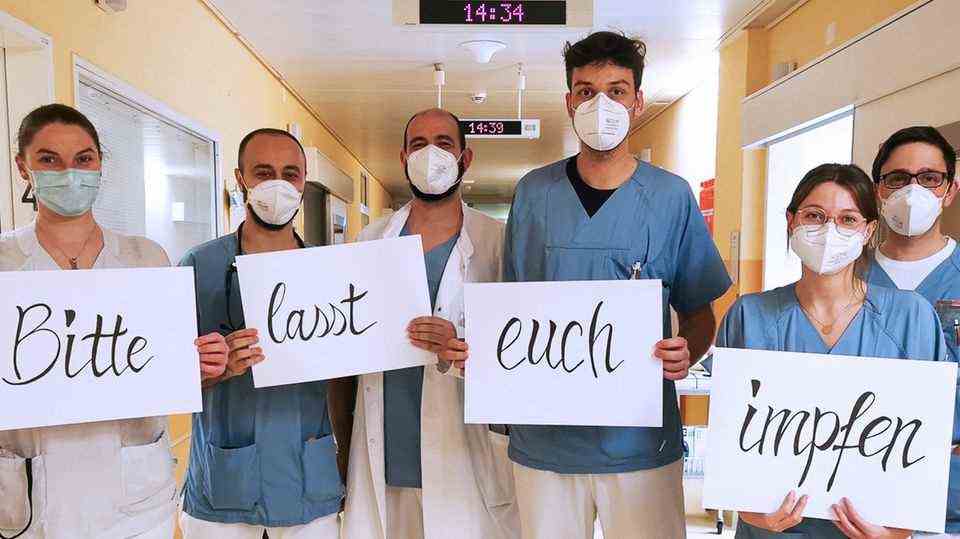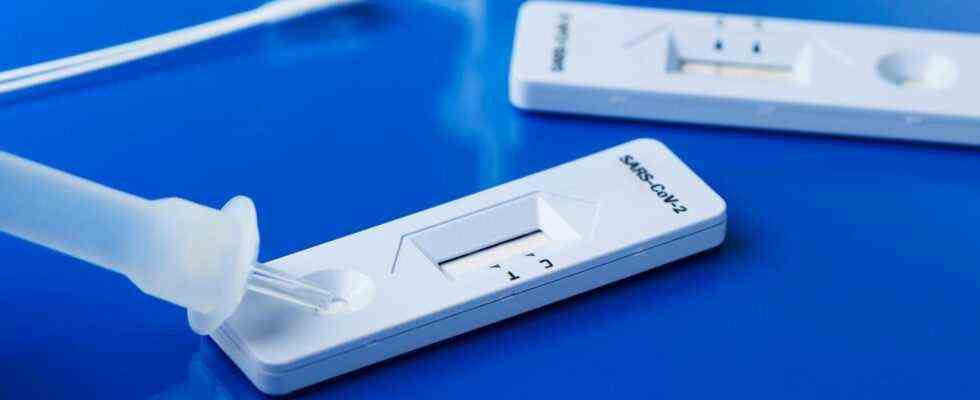Big differences
Corona rapid tests in the check: This is how reliably they detect an infection
Rapid tests help to detect a corona infection. However, they do not provide 100 percent security.
© nito100 / Getty Images
Rapid tests for the coronavirus are currently very popular. But how reliably do you recognize a corona infection? A laboratory test shows that there are major differences between individual manufacturers.
The currently high number of cases is increasing the demand for corona rapid tests. Many people want to play it safe before meeting friends and family and find out in advance whether they are infected with the virus. So-called antigen rapid tests usually deliver a result within 15 minutes. However, the everyday helpers also harbor pitfalls.
So the result is always just a snapshot and can be completely different just a few hours later. In addition, the tests can have problems recognizing an infection, especially in the early phase. This means: Sometimes the test shows a negative result for a (still) symptom-free person, although this is already contagious.
The Robert Koch Institute (RKI) nevertheless recommends the tests, for example before necessary meetings and regardless of the vaccination status, but generally advises restricting contacts in the current situation.
Corona rapid tests do not provide 100 percent protection
Rapid tests detect an average of 58 percent of those infected without symptoms, show studies. For people with symptoms it is slightly more, namely 72 percent. The tests do best in the week after the onset of symptoms: Here they identify 78 percent of people with Covid-19. The figures make it clear why experts warn against a false sense of security even with a negative result and recommend additional hygiene measures at meetings, including ventilation or wearing a mask.
In addition, a quick test is not just a quick test. There are big differences in quality between individual providers, like an extensive test recently showed under the auspices of the Paul Ehrlich Institute (PEI). 122 CE-marked Sars-CoV-2 antigen rapid tests offered in Germany were put to the test. Accordingly, every fifth (26) tested test was not sensitive enough – that is, it did not meet the minimum criterion set. A value of 75 percent for a high viral load was set as the minimum accepted sensitivity.
Sensitive – what does that mean? Basically, the more sensitive a test is, the more accurately it correctly shows infected people as such – i.e. positive. It follows from this that the more sensitive a test is, the less often it gives false negative results.
Sensitivity is therefore the value that is crucial in everyday life. If the test shows a negative result even though the person is infected (false negative), this could lead to further infections. Basically, the quick tests also look at the specificity and thus the probability with which a test delivers false-positive results. In everyday life, however, this variable does not have the same relevance, as a positive rapid test result is always checked with a very precise PCR test. By then at the latest, a false-positive result would be noticed. The specificity of the rapid tests was not investigated in the PEI test.
Rapid tests with high sensitivity
In the check, a total of 96 of the 122 rapid tests tested met the required quality criterion. That means: you are according to PEI suitable for detecting acute infections with a high viral load. The tests that provided the highest sensitivity in the check, even with changed viral loads, included the following:
- Shenzhen Lvshiyuan Biotechnology Co., Ltd .: Green Spring SARS-CoV-2 Antigen Rapid Test Kit (Colloidal Gold)
- Toda Pharma: Toda Coronadiag Ag
- Shenzhen Watmind Medical Co., Ltd .: SARS-CoV-2 Ag Diagnostic Test Kit (Colloidal Gold)
- ulti med Products (Deutschland) GmbH: COVID-19 antigen saliva test (immunochromatography)
- LumiQuick Diagnostics, Inc .: QuickProfile Covid-19 Antigen Test Card
Please note: User errors can also affect the reliability of the test result. In order to reduce this risk as much as possible, the tests should therefore always be used strictly according to the package insert.

One List on the website of the Federal Institute for Drugs and Medical Devices (BfArM) also provides an overview of rapid antigen tests that are performed according to the manufacturer’s information the minimum criteria of the test regulation fulfill. The sensitivity is also checked and assessed by the PEI. Whether such a test has already taken place is noted in the BfArM list. Rapid tests that do not pass the evaluation are deleted from the list. However, results are not yet available for all the tests listed, indicated by the indication “No” under the item “Evaluation PEI”.

